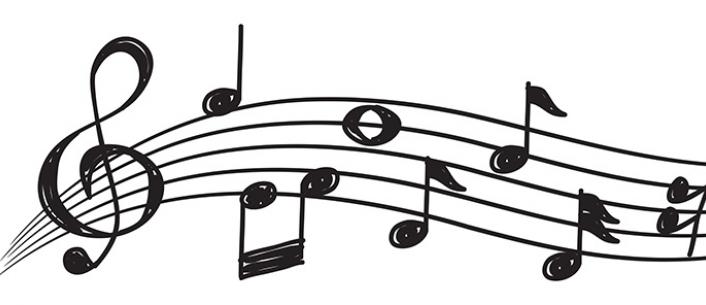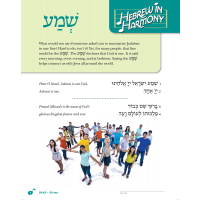Day 1: A Lesson to Introduce Students to Hebrew in Harmony
Day 1: A Lesson to Introduce Students to Hebrew in Harmony

Want to set an upbeat tone for your Hebrew curriculum, starting on DAY ONE?
Introduce Hebrew in Harmony by focusing first on the music – the driving force behind the program that will help students and teachers connect with the material right away.
(Hebrew in Harmony assumes students can already decode, so be sure you’ve assessed their decoding skills at the beginning of the school year.)
The following introductory lesson will give students a taste of what’s ahead and help them acclimate to the new materials.
Advance preparation: All the music for the series is in the digital app. Music for each prayer includes a traditional melody plus 3-4 musical interpretations of the prayer. If you're using an iPhone or iPad, the music and videos work offline, so you don't need a wifi connection. You should know that only prayer modules you've opened once are available offline, so make sure you to select the prayers you want to use with your students while you do have an Internet connection. If you have reliable wifi, you can stream the music directly off any wifi-enabled device. If that’s your preference, have your computer, phone or ipad and strong speakers ready. You can also hook up your device up to an Apple TV in the classroom and play the music to the whole classroom.
Getting started: Have music playing as students arrive to class, whether it’s from the first prayer you plan to introduce or a random selection of songs from other prayers.
Lesson activities: After the class settles in, select one of the following options for the prayer you’ll be studying first:
Option 1: Play a traditional melody.
Ask: How does it make you feel? What message about the prayer does the music send you?
Then play a contemporary melody.
Ask: Does this version of the same prayer make you feel different than the first melody? Which melody feels right to you?
If the students are having a hard time responding, ask everyone to stand up. Post a “feelings sign” in each corner of the room: joyful, sad, contemplative, calm. Tell students to go to the corner based on how the melody makes them feel. Ask them to explain their choice.
Option 2: Start with a corners activity. Post a “feelings sign” in each corner of the room: joyful, sad, contemplative, calm. Play one of the melodies. Have students to go to the corner based on how the melody makes them feel.
Then, ask: Why did you go to this corner? Can you identify what it is about the music that makes you feel this way?
Bring everyone together in the center of the room and play a second melody. Ask: Does this melody make you feel different? Which melody do you like better, and why?
After playing the two melodies, show the first introductory video for that prayer from Hebrew in Harmony Digital.
Ask students to think about the music and video they heard and have them convey – whether through a poem or drawing - the message about the prayer.
Tell the students the music and digital elements are part of this brand-new approach to learning Hebrew prayer that they’ll be using this year. Explain that another element is the print journal; then pass it out.
Tell students they will be using all three elements – the music, the videos and digital games, and the journals. Each time they come to class, there will be directions on the board for them to follow – what to do to start the day, which will usually be something from the journal.
Then, depending on how much time you have available, either:
Move on to a set induction activity in the journal for the prayer you’ll be studying, and follow the first lesson plan in the Curriculum Core.
OR
Wrap up and start the next class with the appropriate set induction activity.
Introducing a new curriculum can be challenging, so highlighting the key elements of the program from the get-go can help students - and teachers - tap into the excitement of how they will be learning during the coming year.


